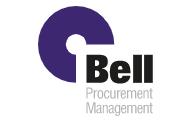 Add My Company
Add My Company
Sign In

One of the largest challenges facing SMBs and their IT departments is providing a 24-7, robust IT infrastructure that supports a dispersed data set and a long-term remote workforce.
24-7 support
This can be especially tough on small businesses with, typically, smaller support teams who may struggle to find and retain the right resources. Often, they compete against their larger counterparts and can fail to attract and retain the right qualified IT support talent.
With this potential IT skills gap, limited internal resources and the expectation of 24-7 availability of IT services from staff and customers, many SMB owners are considering managed services to supplement their existing in-house IT teams, or are outsourcing their IT in its entirety to a third party MSP (managed service provider).
What do Managed Services Providers bring to the table
Typically many business processes rely on technology, so If you have problems with your hardware, applications, hosting, connections or databases, everything can quickly grind to a halt. The right managed service provider can provide proactive monitoring and maintenance to help prevent problems and system outages before they happen, improving system availability.
System updates, security patches and backups can all be pre-tested and planned and automated wherever possible. Fundamentally, this helps business owners to simplify their workloads, improve security and reduce the risk of business disruption. Automation of these repetitive tasks also improves efficiency by freeing up IT staff’s time and allowing them to concentrate on more important projects and network performance.
Reducing cost is another critical factor for a small business. Outsourcing your IT to a third-party MSP will, quite likely, work out significantly cheaper than employing an in-house IT team. A good technology support partner will also have a depth of expertise to help you drive new solutions to optimise your network and right-size your cloud storage and software licenses – all the while, leveraging vendor pricing and enabling further savings. Many MSPs provide a subscription service with a predictable monthly expense, allowing owners to plan and budget accurately.
Depth of knowledge is something you can rely on with an MSP, possibly absent in small, inhouse IT teams. The result of this is that a business gains access to specialist skills and a wealth of experience, with any issues quickly and expertly resolved, enabling successful navigation and pace with a rapidly evolving IT ecosystem.
What does a good MSP look like?
The relationship between a company and their Managed Service Provider can be one of the most important strategic partnerships a business can make. As part of the vetting procedure, SMB owners might initially look for an experienced, accredited, multi-vendor MSP that has the size to scale to their needs. Having the peace of mind in the range of services such a support company can provide – i.e. marketing-leading solutions to help the SMB meet its service and security requirements, while being legally compliant – means you don’t have to worry about your business’s operations running smoothly.
Ideally, business owners would check a MSP company’s values and endorsements to ensure it is customer-centric, with an active interest in your business and IT goals. SLAs, costs and reporting should be transparent and the ticket escalation process slick, with multiple ways to raise a request.
In my opinion, a good MSP is one interested in cultivating an ongoing, long-term relationship, with the goal to become a valued and trusted technology partner to your business.
For more information on Are you running a 24/7 business with only 9 to 5 support? talk to Bell Procurement Management
Enquire Now
List your company on FindTheNeedle.
